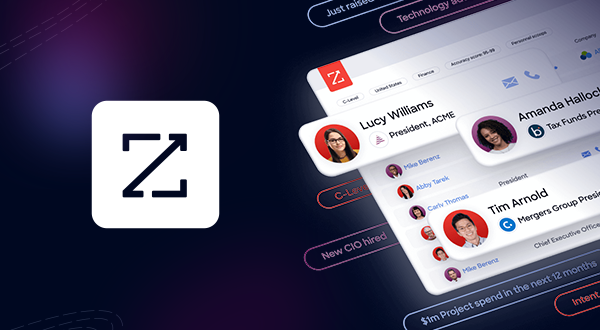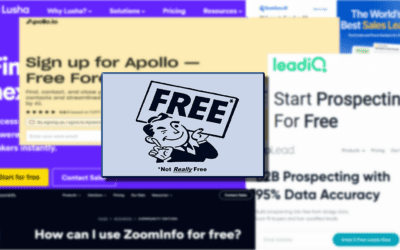How does Zoominfo get their data?
Before we delve into the ethical concerns surrounding ZoomInfo, it’s crucial to understand how they gather their data. The company primarily relies on web scraping, scraping address books of their customers, and public information mining to create comprehensive profiles of individuals and businesses. They crawl websites, scour social media platforms, and extract data from email signatures and public sources. While this method may be legally sound, it raises several ethical dilemmas.
One of the most significant ethical questions revolves around the concept of public information. ZoomInfo argues that they only collect data that is publicly available. But what does “public” truly mean in the digital age? Information that was once relatively hidden in the depths of the internet can now be aggregated and made easily accessible. The line between public and private data has become increasingly blurry. In addition, some ethical concerns have been raised around scraping their own customers email inboxes, signatures, and address books without the expressed consent of those contacts within the inbox and address books.
ZoomInfo’s data collection also brings up additional concerns about consent and control. Individuals and businesses often have little say in whether their data is included in ZoomInfo’s database. While ZoomInfo provides opt-out mechanisms, many people are unaware of the company’s existence or the fact that their data has been collected. This lack of awareness can erode individuals’ control over their own information.
Maintaining data accuracy is a Herculean task, and even giants like ZoomInfo can stumble. The data they collect might be outdated, incorrect, or misleading. Businesses and individuals can suffer significant consequences when decisions are based on inaccurate information. Ethical concerns arise when such inaccuracies impact people’s lives and livelihoods.
Another ethical question revolves around transparency and accountability. ZoomInfo claims to take privacy and data protection seriously. They have measures in place to verify the accuracy of the information they collect and allow individuals to opt out. However, are these measures enough? Transparency about data collection practices and rigorous accountability mechanisms are crucial for building trust.
The power dynamic between data collectors like ZoomInfo and individuals is another concern. While ZoomInfo profits from data aggregation, individuals often receive no compensation for the use of their personal information. This power imbalance raises questions about fairness and equity in the data economy.
In conclusion, ZoomInfo’s data collection practices sit on an ethical tightrope. On one hand, they argue that they’re simply aggregating publicly available data. On the other hand, concerns about privacy, consent, accuracy, transparency, and power imbalances highlight the ethical complexities of their operations.
Ethical standards and regulations must evolve to protect individuals’ rights in this digital age, ensuring a fair balance between data-driven business interests and individual privacy and dignity.
Recent Posts
Free B2B Data: 6 Reason’s Why Free Data Is Not Worth It
Free B2B Data: The Costly Mistake You Can’t Afford to Make When you’re running a B2B sales operation, the idea of “free” can feel like a lifeline. Free B2B data, free tools, free trials—they’re tempting, especially when you’re managing tight budgets and aggressive...
Understanding the SLED Market – B2G for Sales
The SLED industry is vast and varied, comprising state governments, local municipalities, and educational institutions ranging from small rural schools to sprawling university systems. Unlike private sector sales, public sector procurement is often a complex web of...
The Ultimate Thanksgiving Recipe for Choosing the Best B2B Data Provider
Thanksgiving is all about food, family, and finding the *perfect* B2B data provider. Wait, what? Yep, you heard it right. Just like crafting the ultimate Thanksgiving feast, selecting a B2B data provider requires the right ingredients, a solid recipe, and maybe a...




